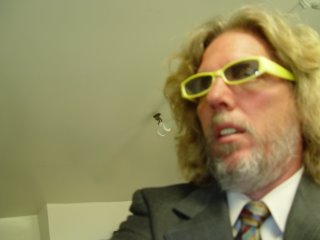Overseas Private Investment Corporation...a wholly owned PRIVATE United States Government owned
company that takes OUR TAX DOLLARS and lends them to UBER RICH Corporate Tycoons so they can invest in OTHER NATIONS, getting richer WITH NO RISK. Call your elected officials on this, stop the GRAVY TRAIN...trying to convince us that this is a VALUABLE STATE DEPARTMENT TOOL is BULLSHIT!
- As a tool of U.S. foreign policy, OPIC provides loans, loan guarantees, and insurance for U.S. companies investing overseas. Including Political Risk Insurance that guarantees these companies NEVER LOSING A DIME, and all backed with our TAX DOLLARS.
- OPIC has helped launch and finance private investment funds that purchase ownership in foreign companies. Again, with OUR TAX DOLLARS!
- OPIC estimates that it (and ultimately U.S. taxpayers) has billions of dollars in exposure to losses on defaulted loans and insurance claims. It is time to end our tax payer EXPOSURE!
The Overseas Private Investment Corporation (OPIC), a wholly owned government corporation established in 1971, provides taxpayer-backed loans, loan guarantees, and insurance to U.S. businesses for investments in "politically risky" countries. According to OPIC, since 1971 the agency has supported $121 billion in overseas investments and has helped to generate $58 billion in U.S. exports, thereby creating more than 237,000 U.S. jobs. (OPIC doesn’t discuss lost U.S. jobs, increased U.S. imports, and cuts in U.S. exports as a result of the agency’s support for foreign, rather than domestic, investment by U.S. companies.) In 1998 alone, OPIC sponsored 47 projects in more than 30 countries. More than half of OPIC’s portfolio is in the power and financial services sectors, and almost two-thirds is in the Caribbean, Central and South American, and Asia/Pacific regions.
OPIC offers up to $400 million in combined support for a single project—$200 million in financing and $200 million in insurance. ALL PAID FOR WITH OUR TAX DOLLARS. Financing is available for new ventures and for the expansion or modernization of existing operations. Loan guarantees usually go to large projects and vary in size from $10 million to $200 million. OPIC provides direct loans for projects involving small businesses and cooperatives. According to the OPIC program handbook, the agency is supposed to consider what contribution a proposed project might make to the economic and social development of the host country before approving loans or loan guarantees.
The agency also sells insurance against: (1) currency inconvertibility—the deterioration in an investor’s ability to convert profits, debt service, and other remittances from local currency into U.S. dollars and to transfer those dollars out of the host country; (2) the loss of an investment due to expropriation, nationalization, or confiscation by a foreign government; and (3) the loss of assets or income due to war, revolution, insurrection, or politically motivated civil strife, terrorism, or sabotage. (We pay for this with OUR TAXES, yet not one AMERICAN can get insurance to cover our home from a nuclear accident at a nuclear reactor facility-See Price Anderson Act.) As part of its efforts to promote foreign investment by U.S. companies, OPIC holds seminars and conferences to explain its services. It also escorts corporate executives on foreign investment missions to meet business leaders, government officials, and potential joint-venture partners.
In the mid-1980s, OPIC began to establish private funds that purchase shares of ownership in overseas investments. By 1998, OPIC had launched almost 30 of these funds, such as the Poland Partners Fund and Aqua International Partners, to provide capital for investments in low-income countries and former nonmarket economies. OPIC selects the fund managers and provides long-term loans and loan guarantees that supplement a fund’s privately raised equity. (OPIC has spent ENOUGH OF OUR TAX DOLLARS TO PAY FOR THE ENTIRE $700 BILLION DOLLAR BAILOUT OF WALL STREET, and again WITH OUR TAX DOLLARS.)
OPIC claims to be a "self-sustaining" agency that generates revenue by selling its financing and insurance services to U.S. businesses. In 1998, 53 percent of OPIC’s revenues came from interest on its U.S. Treasury securities. Additionally, Congress sometimes appropriates funds from the foreign aid budget for specific projects, such as special programs that provide financial backing for U.S. investment in the former Soviet Union. If borrowers default on loans or if insurance claims are filed, the risk ultimately is borne by the U.S. government and taxpayers. As of September 1998, OPIC estimated that its noncollectable loans would total more than $7 million, that its exposure to credit risk under its loan guarantees was $6.3 billion, and that its exposure to insurance claims was, conservatively, $6.9 billion.
According to OPIC’s President and Chief Executive Officer, George Muñoz, in his fiscal year 2000 budget request, "[OPIC’s] budget will provide OPIC a solid base to help America compete globally while mobilizing private sector investment in support of U.S. foreign policy goals." Similarly, OPIC’s former President Ruth Harkin had testified that "OPIC-backed investments play a vital foreign policy role," because the Clinton administration has "made trade and investment promotion a major priority of foreign policy initiatives."
Some examples of our TAX DOLLARS Wrongfully creating JOBS AND WEATH outside of America!
| THE FIRST DEPOSIT OF OVERSEAS PRIVATE INVESTMENT(OPIC) CORPORATION - Article from:
- A&G Information Services
- Article date:
- November 29, 2002
- More results for:
- opic or "overseas private investment corporation" Copyright informationProvided by ProQuest LLC. (Hide copyright information)
|
00-00-0000
THE FIRST DEPOSIT OF OVERSEAS PRIVATE INVESTMENT(OPIC) CORPORATION
ST.PETERSBURG, RUSSIA, NOV 24, 2002 (A&G News via COMTEX) -- TheBoard of Directors of OPIC approved the creationof the investment fund for Russia with a capitalof $210 million. OPIC will provide an investmentguarantee to the fund in the amount of $70million. The managing process will be carriedout by the ...
 | THE WHITE HOUSE: Mallett named to the Board of Directors of Overseas... M2 Presswire; July 28, 1998 ; 242 words...of Directors of the Overseas Private Investment Corporation (C)1994...of Directors of the Overseas Private Investment Corporation. Mr. Robert...Harvard Law School. The Overseas Private Investment Corporation is a self-sustaini... |
 | THE OVERSEAS PRIVATE INVESTMENT CORPORATION. Latin Trade; July 1, 2000 ; 28 words... THE OVERSEAS PRIVATE INVESTMENT CORPORATION (OPIC), a U.S. government investment agency, will finance US$350 million in energy sector projects in Brazil, Guatemala and Venezuela. |
 | Pikarski Named to Overseas Private Investment Corporation Polish-American Journal; September 1, 1998 ; 267 words...09-01-1998 Pikarski Named to Overseas Private Investment Corporation President...Pikarski, Jr. to the Overseas Private Investment Corporation (OPIC...delegations to Poland. The Overseas Private Investment Corporation assists... |
 | PRESIDENT CLINTON NAMES GEORGE "BUDDY" DARDEN AS A MEMBER OF THE BOARD OF... Regulatory Intelligence Data; October 26, 2000 ; INDSTRY GROUP 91; 199 words...of Directors of the Overseas Private Investment Corporation (OPIC...University of Georgia. The Overseas Private Investment Corporation is a self-sustaini...by encouraging U.S. private investment in those nations. NO... |
 | Office of the Press Secretary -- President Clinton names George "Buddy"... M2 Presswire; October 30, 2000 ; 256 words...of Directors of the Overseas Private Investment Corporation (C)1994...of Directors of the Overseas Private Investment Corporation (OPIC...University of Georgia. The Overseas Private Investment Corporation is a self-sustaini... |
 | PRESIDENT CLINTON NAMES GEORGE BUDDY DARDEN AS A MEMBER OF THE BOARD OF... Regulatory Intelligence Data; December 22, 2000 ; INDSTRY GROUP 91; 215 words...of Directors of the Overseas Private Investment Corporation (OPIC...University of Georgia. The Overseas Private Investment Corporation is a self-sustaini...by encouraging U.S. private investment in those nations. NO... |
 | Office of the Press Secretary - President Clinton names George "Buddy"... M2 Presswire; December 27, 2000 ; 272 words...of Directors of the Overseas Private Investment Corporation (C)1994...of Directors of the Overseas Private Investment Corporation (OPIC...University of Georgia. The Overseas Private Investment Corporation is a self-sustaini... |
 | Overseas Private Investment Corporation A Dictionary of Finance and Banking; 39 words... Overseas Private Investment Corporation (OPIC) A US government organization that lends to developing nations and underwrites loan guarantees. It was formed in 1961 to support private investment in developing countries. See also RUSSIAN COUNTRY FUND . |
 | -THE WHITE HOUSE: John Pikarski, Jr. Named to Board of Directors, Overseas... M2 Presswire; July 16, 1998 ; 320 words...Board of Directors of Overseas Private Investment Corporation (C)1994...of Directors of the Overseas Private Investment Corporation. Mr. John...College of Law. The Overseas Private Investment Corporation (OPIC) assists... |
 | THE WHITE HOUSE: President names Zell Miller to Bo Board of the Overseas... M2 Presswire; July 30, 1999 ; 244 words...of Directors of the Overseas Private Investment Corporation (C)1994...of Directors for the Overseas Private Investment Corporation (OPIC...University of Georgia. The Overseas Private Investment Corporation (OPIC) assists... |
 | President Clinton Names Miguel D. Lausell as a Member of the Overseas... U.S. Newswire; July 21, 2000 ; 245 words...LAUSELL AS A MEMBER OF THE OVERSEAS PRIVATE INVESTMENT CORPORATION The President...Lausell as a member of the Overseas Private Investment Corporation. Mr. Miguel...Harvard Law School. The Overseas Private Investment Corporation (OPIC) assists... |
 | THE WHITE HOUSE: Pres names member of the Board of Directors of Overseas... M2 Presswire; January 8, 1999 ; 286 words...of Directors of the Overseas Private Investment Corporation (C)1994...of Directors of the Overseas Private Investment Corporation. Mr. Melvin...by encouraging U.S. private investment in those nations. Organized... |
 | ADVISORY/Trade and Commerce Secretary Lon Hatamiya to Address Overseas... Business Wire; May 4, 2000 ; 283 words...speakers during the annual Overseas Private Investment Corporation (OPIC) International...will also present the Overseas Private Investment Corporation with an...Hatamiya's remarks. WHAT: Overseas Private Investment Corporation (OPIC) Investment... |
 | Office of the Press Secretary -- President Clinton names Miguel D. Lausell... M2 Presswire; July 25, 2000 ; 292 words...Lausell as a member of the Overseas Private Investment Corporation (C)1994...Lausell as a member of the Overseas Private Investment Corporation. Mr. Miguel...Harvard Law School. The Overseas Private Investment Corporation (OPIC) assists... |
 | President Names Zell Miller to Overseas Private Investment Corp. Board of... U.S. Newswire; July 29, 1999 ; 190 words...member of the Board of Directors for the Overseas Private Investment Corporation (OPIC). Gov. Zell Miller, of...M.A. from the University of Georgia. The Overseas Private Investment Corporation (OPIC) assists U.S. investors... |
See all results








1 comment:
Ann, are you sure!?!
Post a Comment